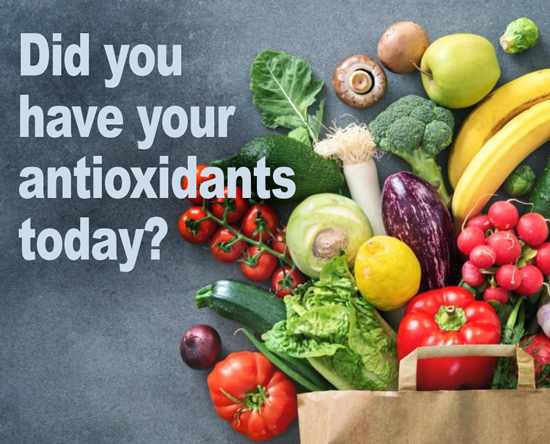You probably know the antioxidants in fruits and vegetables are powerful immune building nutrients, but did you know they are also a powerful antidote for stress?
These are the findings of researchers from Edith Cowan University in Perth, Australia. The university has undertaken research on the health benefits of fruits and vegetables for a number of years.
The current study examined the link between fruit and vegetable intake and stress levels of more than 8,600 Australians.
The study subjects were aged between 25 and 91 and were participating in the Australian Diabetes, Obesity and Lifestyle Study from Baker Heart and Diabetes Institute.
The findings revealed people who ate at least 470 grams of fruit and vegetables daily had 10 per cent lower stress levels than those who consumed less than 230 grams. The World Health Organization recommends eating at least 400 grams of fruit and vegetables per day.
The study was published in April 2021 in Clinical Nutrition.
Increase fruit and veggie intake for better mental health
Lead researcher, PhD candidate Simone Radavelli-Bagatini from Edith Cowan University’s Institute for Nutrition Research, said the study strengthens earlier findings that found a link between diets rich in fruit and vegetables and mental well-being.
“We found that people who have higher fruit and veggie intakes are less stressed than those with lower intakes, which suggests diet plays a key role in mental well-being,” said Radavelli-Bagatini.
While the exact mechanisms behind how fruit and vegetable consumption influences stress are still unclear, the fact that they contain so many key nutrients—including anti-inflammatory antioxidants—is one of the obvious factors.
“Vegetables and fruits contain important nutrients such as vitamins, minerals, flavonoids and carotenoids that can reduce inflammation and oxidative stress, and therefore improve mental wel-lbeing,” said Ms Radavelli-Bagatini. “Inflammation and oxidative stress in the body are recognized factors that can lead to increased stress, anxiety and lower mood.”
It is important to note that while numerous studies have demonstrated the healing affect of antioxidants found in fruits and vegetables, this study shows that eating fruit and veggies actually reduces stress in the first place.
Fruit and veggies cannot lower exposure to stress in one’s life; however, they appear to keep the body itself in a lower state of stress by reducing inflammation.
Reduce stress, reduce related health conditions
The results of the study have far-reaching implications considering that stress leads to many life-threatening health conditions.
“Long-term and unmanaged stress can lead to a range of health problems including heart disease, diabetes, depression and anxiety so we need to find ways to prevent and possibly alleviate mental health problems in the future,” said Radavelli-Bagatini. “The study’s findings emphasize that it’s important for people to have a diet rich in fruit and vegetables to potentially minimize stress.”
Since the ultimate goal of researchers is to demonstrate the life-long benefits of eating fruits and vegetables, they have an uphill battle: Currently only one in ten people eat the recommended five servings daily—and even that recommendation is low according to many experts.
One way to boost fruit and veggie intake easily is by supplementing with Fruit & Veggie Plus from Optimal Health Systems.
Packed with dozens of fruits, veggies and herbs, each scoop of Fruit & Veggie Plus provides over 20,000 antioxidant ORAC. That’s more than 13 times the antioxidant potency that the average American consumes each day.
Start lowering inflammation—and stress—with a scoop of Fruit & Veggie Plus today! Click sidebar ad for more info.
– – –
Sources: Clinical Nutrition, Institute for Nutrition Research – Edith Cowan University, Science Daily.


